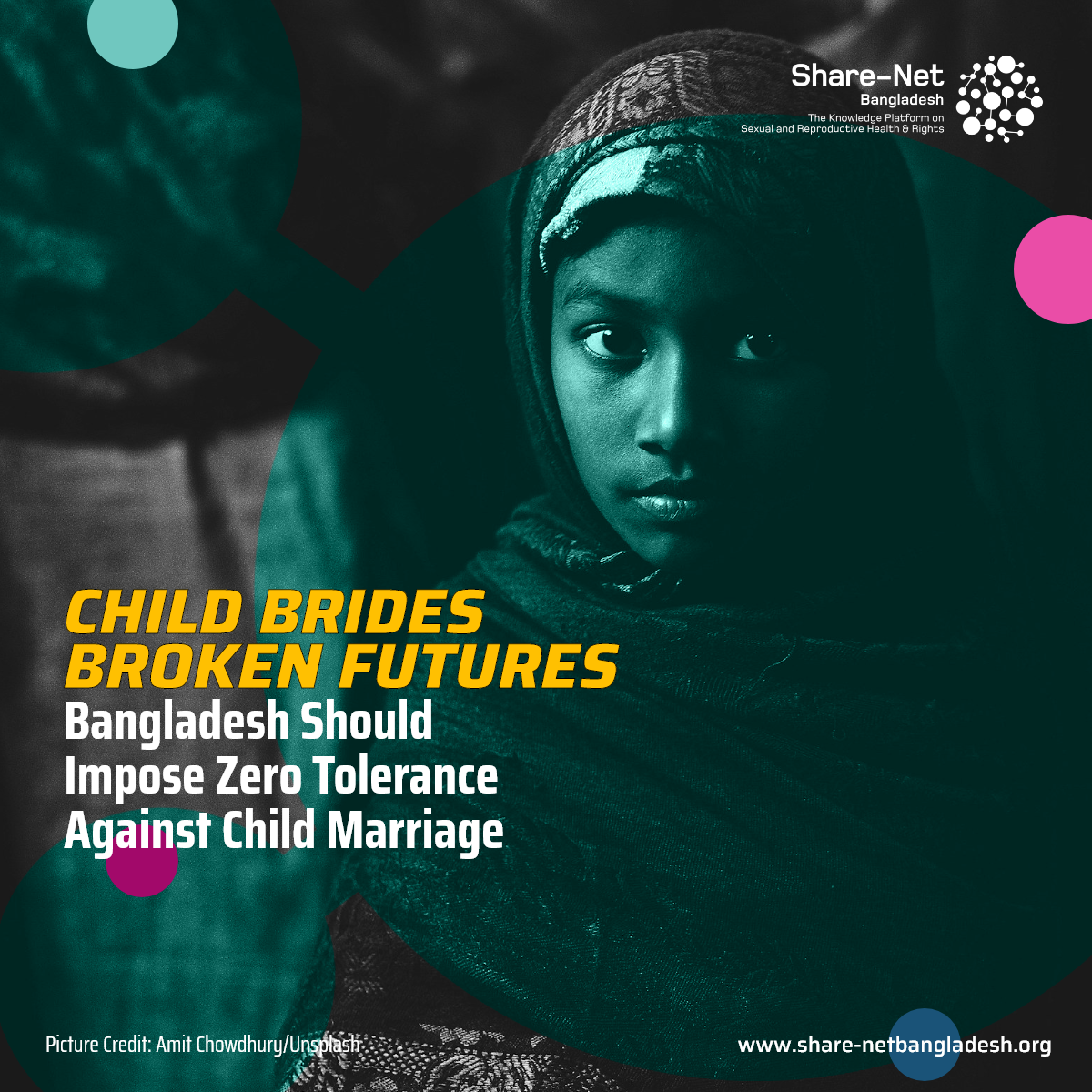Child Brides, Broken Futures: Bangladesh Should Impose Zero Tolerance Against Child Marriage
Despite some gains in education and health indicators, child marriage remains a tragic constant in the lives of too many girls in Bangladesh. According to a recent UNICEF report, more than 51.4% of Bangladeshi women aged 20–24 were married before turning 18—the highest child marriage rate in Asia. That’s not just a statistic—it’s a direct reflection of broken systems, entrenched social norms, and a society that still fails to protect its daughters.
Early marriage is not just a violation of a girl’s reproductive rights—it’s the gateway to a lifetime of harm. From early pregnancy, gender-based violence (GBV), and loss of education to reproductive health complications and post-partum depression, the consequences are far-reaching. UNICEF’s data shows that 24% of girls give birth before 18, and 28% of girls aged 15–19 suffer physical or sexual abuse from partners. Meanwhile, only 47% of married teenage girls have control over decisions related to their reproductive health.
The ripple effects are staggering. Girls pushed into marriage often face high-risk pregnancies, lack access to safe menstrual regulation (MR) services, and experience severe mental health impacts like anxiety and depression due to marital and sexual violence. Post-partum depression, largely unacknowledged, remains a hidden crisis among teenage mothers who are barely out of childhood themselves.
The root causes are well known: poverty, patriarchal values, gaps in legal enforcement, and the social stigma attached to unmarried girls. But while the causes are known, the political will to act decisively still seems weak.
“Child brides are children too, and we must protect them at any cost“—this reminder from the UNICEF report could not be more urgent.
Ending child marriage isn’t only about justice for girls. It is a necessary step toward achieving Bangladesh’s broader Sexual and Reproductive Health and Rights (SRHR) goals. If Bangladesh is serious about reducing maternal mortality, curbing gender-based violence, and expanding reproductive healthcare, then it must begin by tackling early marriage head-on.
Zero tolerance isn’t just a slogan—it must mean criminal accountability for those who facilitate child marriage, stronger social protection for vulnerable families, and investments in adolescent-friendly SRHR services, including access to contraception, safe MR, and psychological support.
With more than one-third of adolescent girls out of education, employment or training, their future is on the line. Less than 2% of girls aged 15–24 have digital literacy, making them more vulnerable to exploitation and economic dependency.
It’s time the government stopped turning a blind eye. Bangladesh cannot afford to celebrate its economic progress while girls continue to be married off, abused, and silenced. A zero-tolerance approach to child marriage will not only protect their rights—it will help unlock the full potential of half the population.
Source: The Daily Star
Picture Credit: Amit Chowdhury/Unsplash

